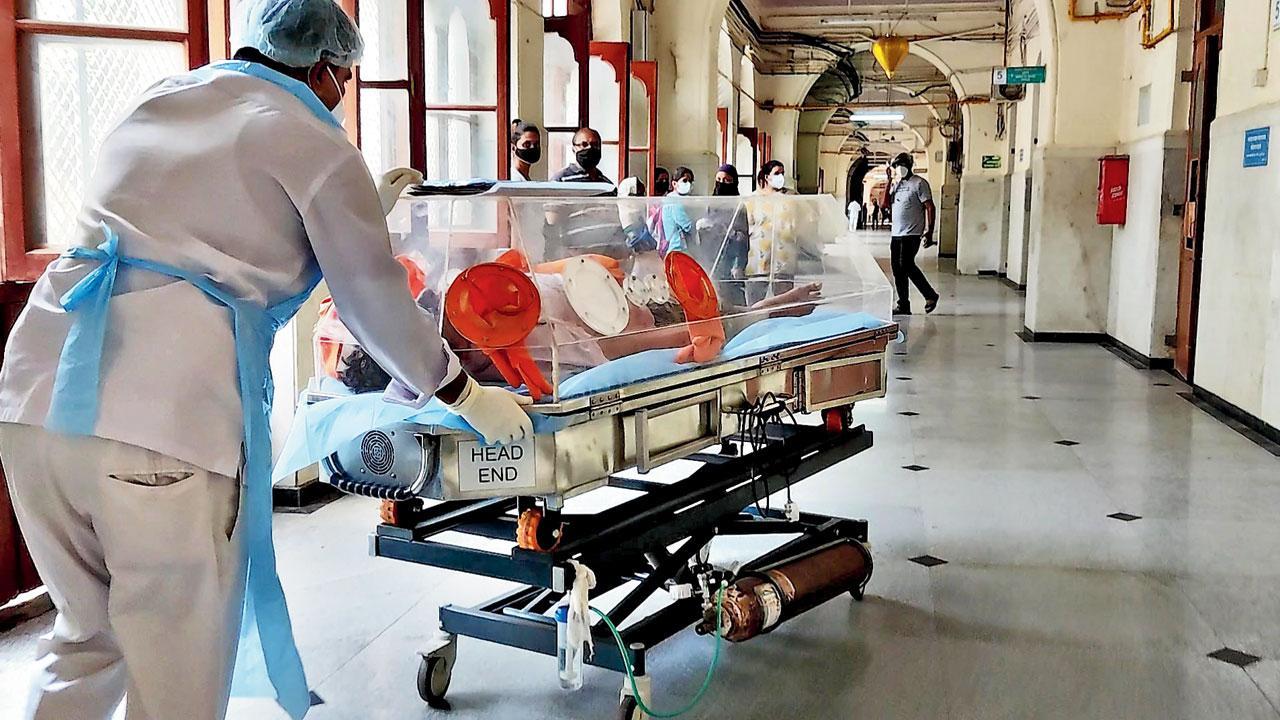Home / Mumbai / Mumbai News / Article /
Mumbai: New stretcher at JJ Hospital enables contactless movement of patients
Updated On: 16 May, 2021 08:03 AM IST | Mumbai | Somita Pal
Designed by doctors, the pressurised isolation system allows staff to transport Covid-19 patients without risking cross-infection
Listen to this article :

A JJ Hospital staff is seen transporting a COVID-19 patient to another ward
An innovative stretcher designed by doctors at Sir JJ Group of Hospitals has helped resolve the problem of moving Covid-19 positive patients within the hospital premises.
The stretcher has made it possible to facilitate interaction between patients and relatives



